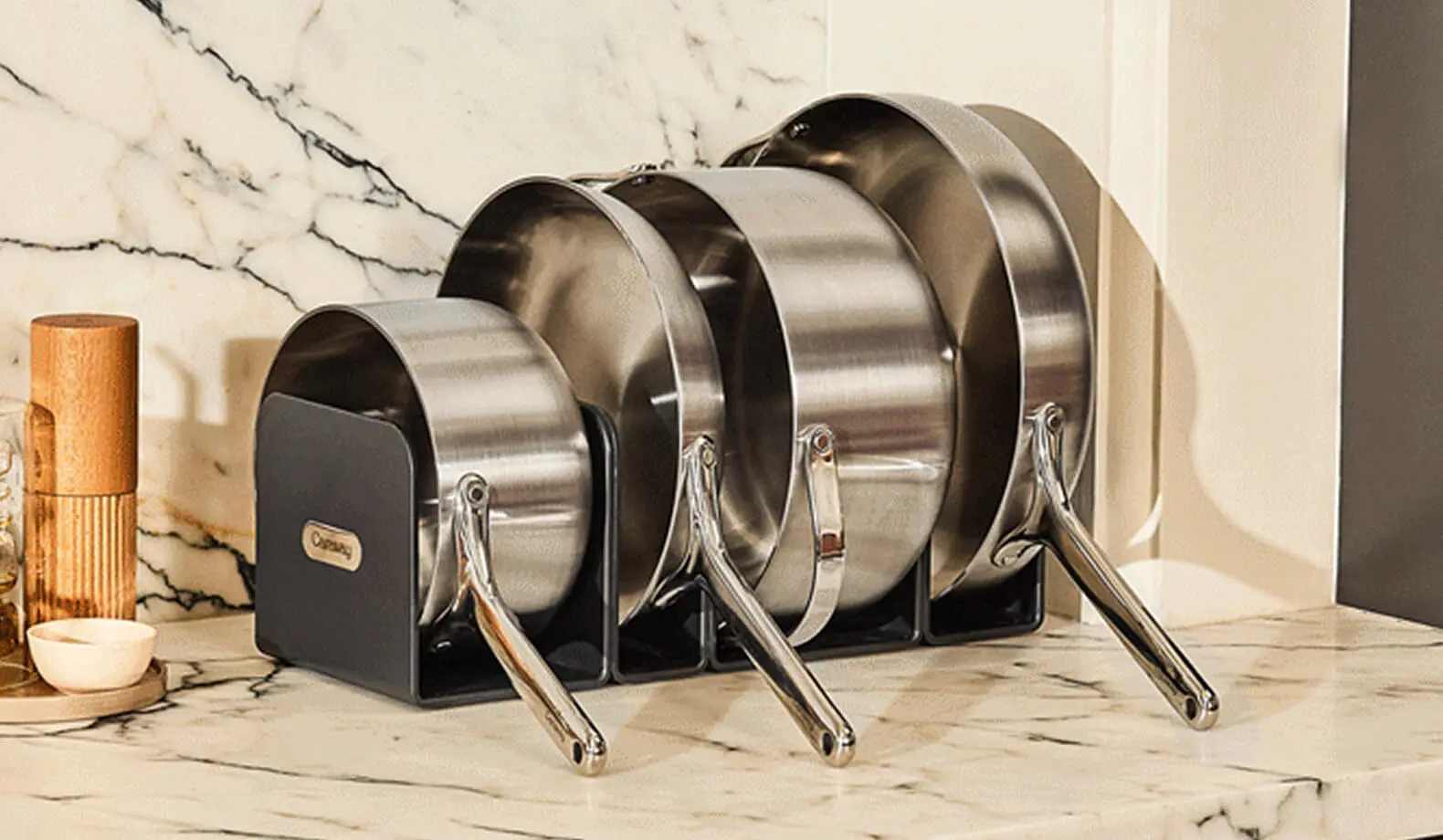Almost there! You're $90.00 away from free shipping
Your Cart is Empty
Get started with the Caraway essentials!
Free Shipping On Orders $90+
Free Returns
30-Day Trial
Home & Kitchen with Caraway

Aluminized steel might not be the flashiest material in your kitchen, but it’s a common one, especially in bakeware. If you've ever used a sheet pan that wasn’t ceramic-coated or non-stick, chances are it was aluminized steel.
But how safe is it, really?
At Caraway , we believe your cookware should work with your health, not against it. So let’s break it down: what aluminized steel is, how it’s made, and whether it belongs in a health-conscious kitchen. If you’re asking the right questions, you’re already halfway to a better choice.
Aluminized steel is exactly what it sounds like—steel that’s been coated with a thin layer of aluminum. Manufacturers bond the aluminum to the steel through a process called hot-dipping, which gives the material a shiny, corrosion-resistant surface. The result? A hybrid that combines the strength of steel with some of the heat conductivity and rust resistance of aluminum.
Because of this, aluminized steel is popular in bakeware like sheet pans, loaf pans, and cake tins. It heats up quickly , browns evenly, and is generally more affordable than higher-end options.
Here’s where things get tricky. Aluminized steel isn’t inherently toxic, but it’s not the cleanest option either.
The aluminum coating can wear down over time, particularly if the surface gets scratched or comes into frequent contact with acidic ingredients like tomatoes or citrus. When that barrier is compromised, small amounts of aluminum can leach into your food.
Is it a dealbreaker? Not necessarily. The risk is probably minimal with light use and gentle care. But if you're a health-conscious home cook trying to avoid even trace metals in your meals, it may raise concerns, especially as research continues to explore the long-term effects of aluminum exposure on neurological health . If you’re looking to upgrade your bakeware, choosing the best nonstick baking sheets can be a simple way to reduce exposure to reactive metals and make cleanup easier.
While aluminized steel isn’t classified as toxic, it’s also not the most reliable choice if you're aiming for a truly clean kitchen. The risk of aluminum leaching over time or when cooking acidic foods might be low, but it’s not zero. And for many home cooks focused on reducing unnecessary exposure to reactive materials, “low risk” still isn’t good enough.
At Caraway , we don’t believe you should have to compromise between performance and peace of mind. That’s why we created our ceramic-coated and stainless steel cookware collections—each thoughtfully engineered to be non-toxic, easy to clean, and safe for everyday use.

If you're ready to upgrade from “good enough” to cookware you can truly trust, explore our kitchen essentials —because clean cooking should start with clean tools.
Sources:
Is aluminum exposure a risk factor for neurological disorders? | PMC
Almost there! You're $90.00 away from free shipping
Get started with the Caraway essentials!
Free Shipping On Orders $90+
Free Returns
30-Day Trial